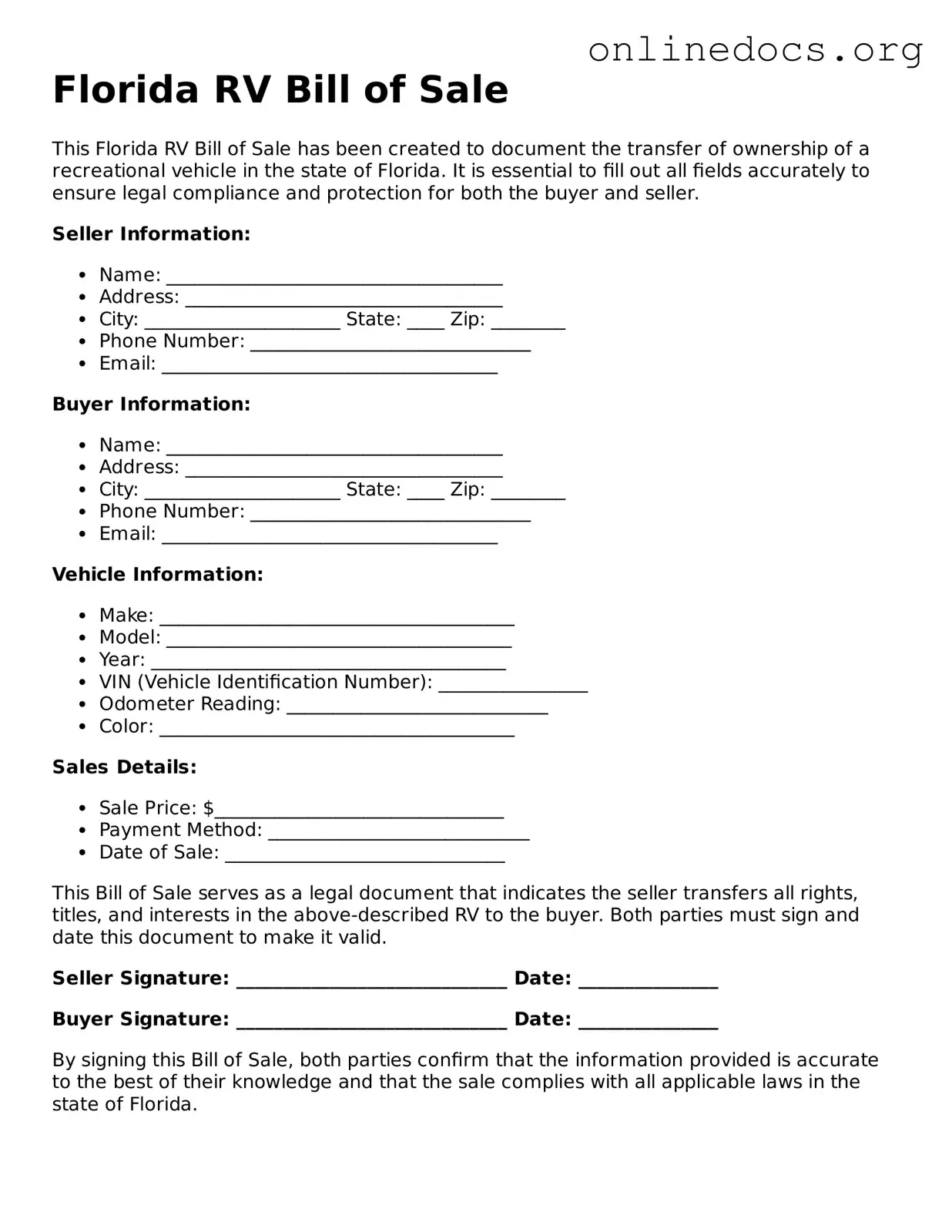The Florida Vehicle Bill of Sale is similar to the general Bill of Sale used for various personal property transactions. Both documents serve as proof of the transfer of ownership from one party to another. They outline essential details such as the names of the buyer and seller, a description of the item being sold, and the sale price. This document can be used for a variety of items, including furniture, electronics, or collectibles, making it versatile for different types of sales.
Another document similar to the RV Bill of Sale is the Boat Bill of Sale. Like the RV Bill of Sale, this document records the transfer of ownership of a watercraft. It includes pertinent information such as the hull identification number, make, model, and year of the boat. Both documents aim to protect the interests of both parties involved in the sale, ensuring that the transaction is legally binding and recorded appropriately.
Understanding the implications of a durable Power of Attorney can significantly ease decision-making in critical times. You can find more information by visiting the essential Power of Attorney form guide.
The Motorcycle Bill of Sale also shares similarities with the RV Bill of Sale. This document facilitates the transfer of ownership for motorcycles, capturing essential details such as the Vehicle Identification Number (VIN), make, model, and year. Both documents serve to provide a clear record of the transaction and protect the rights of both the buyer and the seller in case of disputes.
The Mobile Home Bill of Sale is another related document. It is specifically used for the sale of mobile homes and includes information such as the serial number and title details. Like the RV Bill of Sale, it serves to formalize the transfer of ownership and ensure that all legal requirements are met during the transaction process.
The ATV Bill of Sale is similar in purpose and structure to the RV Bill of Sale. This document is used for the sale of all-terrain vehicles and includes key details such as the make, model, and VIN. Both documents provide a clear record of the sale, protecting both the buyer and seller while also facilitating the registration process with the appropriate authorities.
The Lease Agreement can also be compared to the RV Bill of Sale, albeit in a different context. While the RV Bill of Sale confirms ownership transfer, a Lease Agreement outlines the terms under which one party rents property from another. Both documents require clear identification of the parties involved and specific details about the property, ensuring that both parties understand their rights and obligations.
The Real Estate Purchase Agreement is another document that bears similarities to the RV Bill of Sale. This agreement is used for the sale of real property and contains details about the buyer, seller, and property description. While it deals with immovable property, both documents share the fundamental purpose of formalizing a sale and protecting the rights of the parties involved.
The Firearm Bill of Sale is also akin to the RV Bill of Sale in that it documents the transfer of ownership of a firearm. This document includes specific details about the firearm, such as its make, model, and serial number. Both documents serve to ensure that the transaction is legal and that both parties are protected in the event of future disputes.
Lastly, the Equipment Bill of Sale is similar in function to the RV Bill of Sale. This document is used for the sale of heavy machinery or equipment. It includes important information such as the equipment's make, model, and serial number. Both documents provide a record of the transaction and help ensure compliance with any applicable regulations or laws governing the sale of such items.
